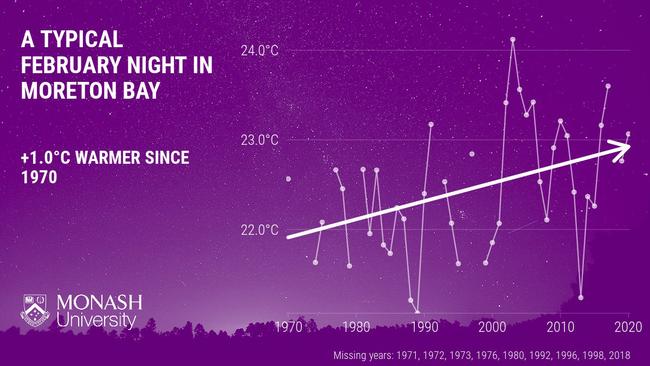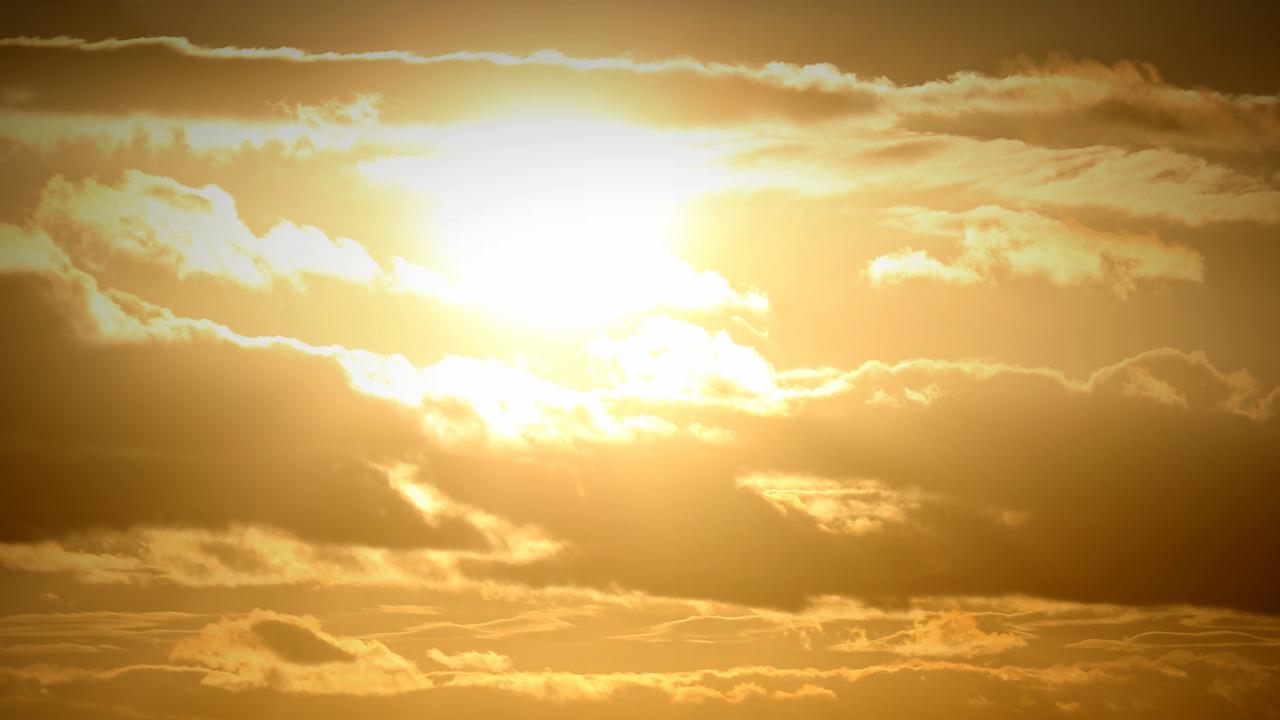Long term data shows February overnight temperatures are warmer than they were 50 years ago
Dr Christa Pudmenzky explains how Moreton Bay's February climate is changing. Plus, what do greenhouse gases have to do with warmer temperatures?

HyperLocal
Don't miss out on the headlines from HyperLocal. Followed categories will be added to My News.
Moreton Bay residents can expect a warm humid weekend with showers unlikely, hitting a top temperature of 25 degrees on Saturday and 26 degrees on Sunday.
During summer, cooler nights are a welcome relief from the heat.
Nowadays, summer nights are warming up.
A typical February night in Moreton Bay is around 23 degrees, one degree warmer than it was 50 years ago.
While the graph (above) shows some years are warmer than others, the overall trend is warming.
Voices from your community
It's not just nights getting warmer - the weather bureau data also shows similar trends occurring during the day.
The data matched the experience of Dakabin resident Lelani Parker, who said summer was getting longer and warmer.
"I've noticed higher temperatures and more heatwaves," she said.
"Summer seems to start earlier and last longer.
"We used to live in a new estate and noticed a significant increase in temperatures when more trees were removed in order to make way for housing.
"It doesn't seem to get as cold in winter either."
Community voices like Lelani's tell us how residents and business owners in Moreton Bay feel about their local climate. If you would like to contribute your voice to our column, you can fill out our 5-minute survey here.
Fast fact
Moreton Bay's warming patterns are consistent with global climate change trends.
The main cause of global warming is an increase in greenhouse gases in the air - particularly carbon dioxide.
Carbon dioxide is produced when we burn fossil fuels like coal, gas and oil, mostly for energy production and transportation.
Carbon dioxide has been increasing since the industrial revolution began in the 18th century.
Dr Christa Pudmenzky is a climate scientist at the University of Southern Queensland.
This column is part of a collaboration between the Monash Climate Change Communication Research Hub and News Corp to deliver hyperlocal weather and climate information.
Follow the Hub on Twitter to join the conversation.

